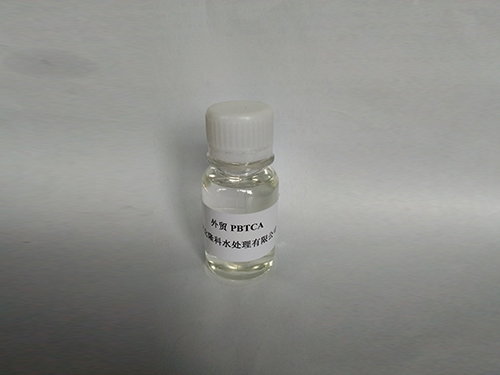There are a large number of microorganisms, including fungi, viruses, algae, and protozoa, which can promote natural material circulation and cause great harm to oil fields. They may cause equipment, pipelines, and water leakage. Injection wells can also reduce the permeability of reservoir holes and prevent water injection. They can even degrade other oilfield chemicals and weaken their use of chemicals, such as the efficiency caused by the degradation of polymers used in tertiary oil recovery, resulting in ineffective tertiary oil production. Therefore, several important aspects, such as drilling, oil production, and oilfield water treatment, involve the release of agents during oilfield construction, especially in most oil fields in China where water injection is used, but also to ensure the production of water injection agents. According to relevant departments, due to the effect of corruption, the corrosion of oilfield equipment and pipelines is very serious. Some equipment has corroded and perforated compared to last year, and oil production has been forced to stop for a month due to pipeline blockage and less usage. At present, the oil field is taking measures of "three conspiracies", including releasing agents.
The agents currently used in oil fields are in the treatment of civilian and industrial circulating water, typically using inorganic compounds such as chlorine, sodium hypochlorite, chlorine dioxide, potassium permanganate, and chlorinated phenols, trichloroisocyanuric acid, ammonium salts, dithiocyanomethane, allicin, and other organic compounds. According to their mechanisms, these reagents can be divided into aerobic agents and non aerobic agents. As the quality requirements for oilfield environment and water, as well as the water quality requirements for civil and industrial circulating water environments and different types and hazards, the performance requirements of agents also vary. Therefore, the development of oilfield agents has been a hot topic in the field of oilfield chemistry for many years.

Sulfate reducing bacteria, iron, and saprophytic bacteria are harmful to oil fields. Therefore, the selection of agents should focus on these aspects. Sulfate reducing bacteria are strictly anaerobic bacteria that engage in anaerobic respiration, oxidizing organic compounds or hydrogen containing carbon, reducing sulfates, and producing H2S. Its pH range for survival is very wide, ranging from 5.5 to 9.0. The sulfate reducing bacteria commonly found in oil fields are the genus Desulfovibrio, which mainly adhere to the pipe wall in groups or colonies. Its main harm is the depolarization effect on the metal surface. Due to the action of its hydrogenase, sulfate is reduced to sulfide and primary oxygen state [O], and [O] and [H] are depolarized to generate H2O, which accelerates corrosion of pipelines and equipment through its depolarization effect. The corrosion product FeS can also block pipelines and water injection wells. Due to the harm of sulfate reducing bacteria, oil recovery is almost hindered from all aspects. So, in recent years, people have attached great importance to its research; Developing new strains of sulfate reducing bacteria; The range of its oxidation of carbon containing organic compounds, etc. I will not elaborate on each one here. Iron is a widely distributed multi family bacterium that is a type of saprophytic bacteria. It mainly converts ferrous into high valent iron and uses the energy released by iron oxidation to meet its survival needs. It is an aerobic heterotrophic bacterium, and its harm is to form an oxygen concentration battery in equipment and pipelines, which accelerates their corrosion. It secretes a large amount of mucus, which can cause blockages in water injection wells and filters. At the same time, it provides an environment for the survival and reproduction of sulfate reducing bacteria. Saprophytic bacteria, also known as mucus forming bacteria, are aerobic heterotrophic bacteria that secrete a large amount of mucus and adhere to pipelines and equipment, causing biofilm to block water injection wells and filters. At the same time, they also produce oxygen concentration batteries, causing corrosion of equipment and pipelines and providing an environment for the survival and reproduction of sulfate reducing bacteria. It can be removed using a clay stripping agent.
Like other organisms, they enjoy being constrained by their environment. We choose fungicides based on factors that can affect growth:
(1) Obstructing cellular respiration;
(2) Inhibiting protein synthesis, or damaging water membrane proteins, or proteins and electrons, resulting in protein precipitation and loss of activity;
(3) Disrupting the balance of the environment both internally and externally, causing water loss to dry and die, or filling with water that expands and dies;
(4) Inhibition of nucleic acid synthesis, loss, and alteration of its nuclease activity. In addition, we must consider environmental factors and some powerful agents that cannot be biodegraded. Some agents can kill them, but others cannot be used as nutritional fluids in oil fields.
In addition, the geological conditions of the oil field and the presence of impurities in the water can affect its effectiveness. This is our choice, focusing on oilfield agents and dosage. Surface active agents (SAA) are used in the current field and their effects. Especially cationic and zwitterionic quaternary ammonium compounds can reduce the surface tension of water, peel off sludge, and have a synergistic effect on compatibility with other chemicals. They have a multi energy characteristic and are widely used as oilfield agents. This is represented by dodecyl dimethyl benzyl chloride (commonly known as 1227 agent). The mechanism is that it can be selectively adsorbed on the surface of negatively charged, high concentration ion clusters, forming a direct impact on the normal function of cells. It directly damages the control membrane of protoplast cell permeability, leading to dry or charged death. SAA agent will produce a lot of foam, at the same time, the efficiency of SAA and organic matter and other impurities will form and lose the water complex. Therefore, when using SAA agents, defoamers are often added, and the well must be cleaned, anti drainage, acidified, and strictly operated and managed.

Address:No.3 North Haohua East Road, Industrial Park, Neiqiu County, Xingtai City, Hebei Province
Website:www.longkehg.com